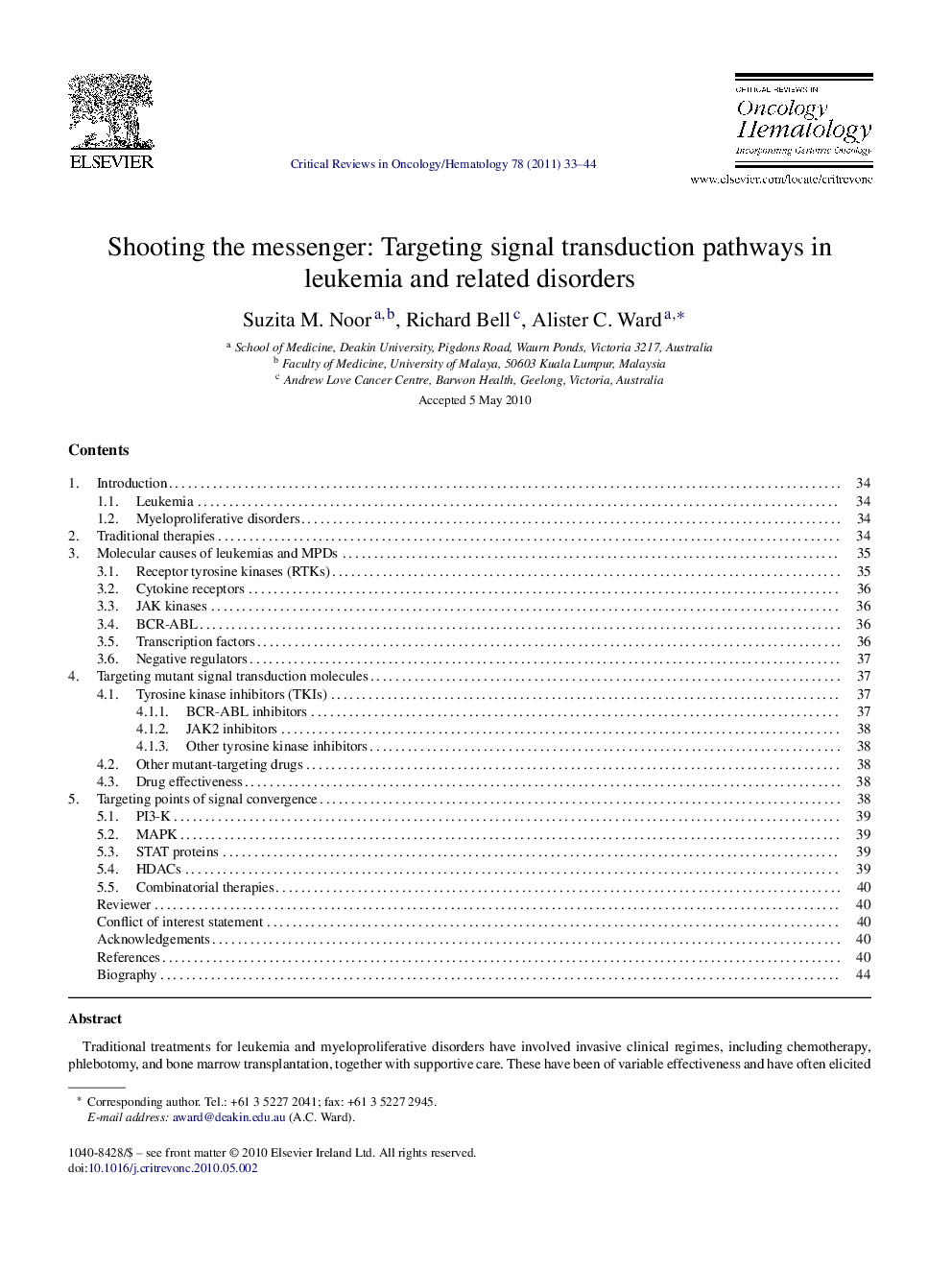| Article ID | Journal | Published Year | Pages | File Type |
|---|---|---|---|---|
| 3329377 | Critical Reviews in Oncology/Hematology | 2011 | 12 Pages |
Traditional treatments for leukemia and myeloproliferative disorders have involved invasive clinical regimes, including chemotherapy, phlebotomy, and bone marrow transplantation, together with supportive care. These have been of variable effectiveness and have often elicited adverse, sometimes life-threatening side effects. Perturbation of key signal transduction pathways has become a consistent finding in the pathophysiology of leukemia and related diseases. This has allowed the development of specific pharmacological agents targeting deviant pathway component(s). Of this class of therapeutics those directed at the leukemic oncoproteins BCR-ABL and PML-RARα have provided proof-of-concept of the approach and are now established mainstream therapies. Specific inhibitors for the JAK2 tyrosine kinase are now in active development for myeloproliferative disorders and may become a new class of targeted therapeutics. However, an emerging motif in the field is the convergence of multiple mutant pathways on key downstream messengers, such as STAT5 or PI3-kinase, which therefore constitute potential new therapeutic targets.
